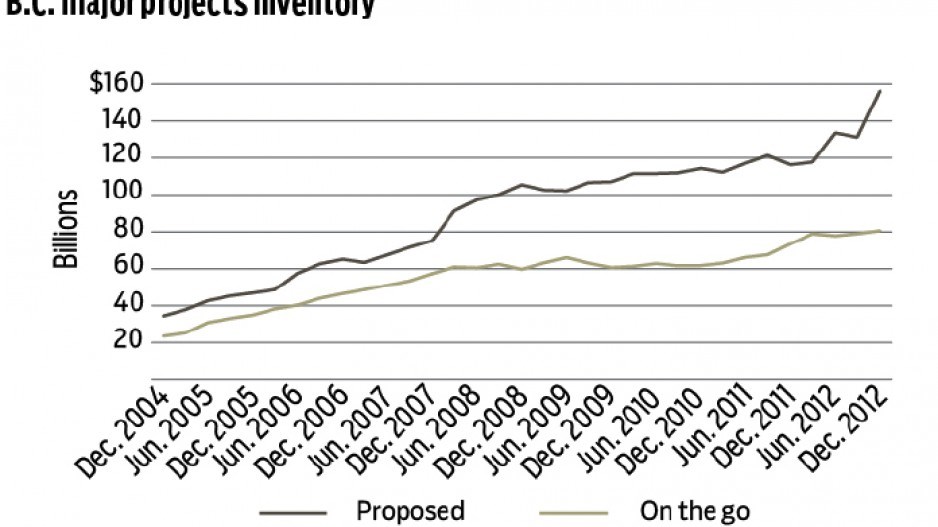Dix garners applause
BC NDP leader Adrian Dix’s March 14 presentation to the Urban Development Institute (UDI) was low-key in many respects.
On the one hand, there was no over-the-top greeting such as that Premier Christy Clark received last year from UDI director Ward McAllister, who welcomed “my friend Christy,” gushing: “We love you to pieces, and we’re going to be all there for you.”
Clark returned the compliment with a peck on the cheek, something the soft-spoken Dix didn’t offer Gary Pooni (who thanked Dix for speaking) nor developer Michael Audain, marketer Bob Rennie and Gordon Harris of SFU Community Trust (all of whom Dix singled out of the audience for special mention).
His lips were also sealed with respect to his party’s platform, which will be released in the run-up to the May 14 provincial election. The movement of goods and people, productivity, rectifying inequality and sustainability were areas he flagged for attention, however.
He also pledged to work with municipalities to find opportunities to encourage densification that supports the development of sustainable transit infrastructure.
“We have to ... support policies that will ensure adequate density to support the building of rapid transit lines,” he said. “We have to put our money where our mouth is.”
Dix garnered the most earnest applause from his audience when calling for a “more generous, less personal politics” in the province.
Unlike Clark last year, Dix fielded questions from media afterwards sotto voce – but media were less interested in his approach to real estate than in his response to John Dyble’s report regarding the strategy hatched by the premier’s staff for courting ethnic voters.
Onni wins approval
Onni Development Corp. has overcome a major hurdle to the redevelopment of the contentious Safeway site at the corner of Lonsdale Avenue and 13th Street in North Vancouver.
Rezoning of the site recently received third reading, posing the required bylaw for final adoption in early April. Onni will next have to seek a building permit for the project.
The project appeared to be dead last December when Onni halted and threatened to withdraw an application for it in response to the rigging allegations.
The project, one of the largest in North Vancouver’s history, stirred strong emotions on council and on the street with its proposal for 95,000 square feet of shops, including a grocery store; 78,000 square feet of office space; and two residential towers with approximately 340 units. The development would also deliver the city 10,000 square feet of residential space and a 37-unit childcare.
And even the latest vote drew a narrow majority – one vote – from council, with four votes cast in favour and three opposed. City of North Vancouver mayor Darrell Mussatto is relieved that the rezoning process – which began in late 2010 – is almost complete. While the central Lonsdale area is experiencing a rapid transformation, Mussatto feared the loss of the project would send the wrong message to subsequent developers about North Vancouver’s openness to doing business. But last week he acknowledged that North Vancouver isn’t any different from other municipalities in the region, which have far more engaged residents than they did 20 years ago.
“Redevelopments are not slam dunks,” he said. “They take a lot of work – working with the community.”
Major projects increase
Despite a drop in the number of proposed projects, the latest issue of the B.C. Major Projects Inventory (MPI) is full of good economic news.
While the number of proposed projects fell from 533 to 505, the lowest number since September 2009, an uptick in projects under construction from 359 to 381 offset the drop. Moreover, the value of projects proposed and under construction rose significantly to put the total value of projects tracked by the MPI at $260.9 billion (the value of completed projects stood at just $2.2 billion).
The number of projects on hold also increased, from 68 to 76, but the value of these was well within recent ranges at $21.8 billion. Given the increasing value of projects tracked, it continues to represent less than 10% of all projects tracked.
Major projects are those with a capital cost of $20 million or more in the Lower Mainland or $15 million or more in the rest of the province. •




